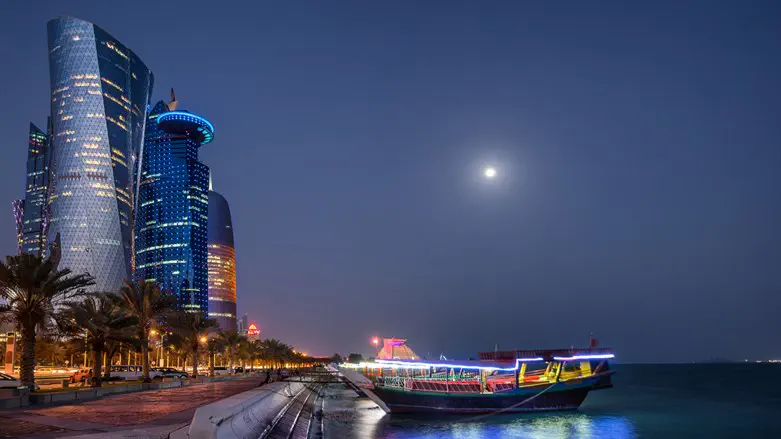
The diplomatic relationship between the United States and Qatar has long been fraught with complexities and contradictions. While Qatar has positioned itself as an essential player in the Middle East — a hub for U.S. military operations and a key mediator in regional conflicts — its close ties to organizations like Hamas, its financial support for various Islamist groups, and its history of corruption make it a highly unreliable ally. Given these factors, Donald Trump and his administration should reassess their approach to Qatar and hold the nation accountable for its actions in a way that the Biden administration has failed to do.
At the core of Qatar’s problematic relationship with the U.S. is its longstanding support for Hamas, a U.S.-designated terrorist organization. Qatar has hosted Hamas leaders in Doha for over a decade, providing a safe haven for the group’s political bureau. Despite the Biden administration’s recent pressure on Qatar to distance itself from Hamas, Qatar’s response has been tepid at best. The Qatari government has been reluctant to sever its ties with the group, even as Hamas has played a central role in exacerbating violence in Gaza and the broader Middle East.
Qatar’s decision to continue hosting Hamas raises serious questions about its commitment to U.S. counterterrorism objectives. While Qatar may argue that it acts as a mediator, the reality is that its actions undermine the peace process. The Trump administration should not allow Qatar to act as a facilitator for Hamas, nor should it reward Qatar with military and economic privileges until it takes concrete steps to divorce itself from the group.
Qatar’s failure to adequately address the financing of terrorism is another critical concern. Despite signing a counterterrorism financing agreement with the U.S. in 2017, Qatar continues to be a haven for financiers linked to Hamas and other extremist groups. Several reports have emerged indicating that Hamas has been able to raise funds freely in Qatar, undermining U.S. and international efforts to curb terrorist financing. The Biden administration’s complacency in this area is troubling, as Qatar’s lax regulatory environment allows for the flow of funds to groups that actively oppose U.S. interests.
Trump should demand that Qatar take meaningful action to clamp down on the financing of terrorism within its borders. This should include shutting down fundraising operations and prosecuting individuals who finance terrorist activities. If Qatar fails to comply, the U.S. should consider revoking its status as a Major Non-NATO Ally and re-evaluate its military presence at Al Udeid Air Base.
Another area where Qatar’s actions are problematic is its media operations, particularly through Al Jazeera. As a state-owned network, Al Jazeera has been accused of broadcasting propaganda that incites violence and spreads anti-Western rhetoric. Its coverage often promotes anti-Israel sentiments, which aligns with the interests of groups like Hamas. This has drawn widespread criticism, particularly from Israeli officials and pro-Israel advocates in the U.S. The U.S. government should not tolerate a media network that undermines its foreign policy goals and fuels regional instability.
The Trump administration should take concrete steps to rein in Al Jazeera’s influence, including pushing for the network to register as a foreign agent of Qatar in the U.S. and assessing whether it should face sanctions for its role in spreading hate speech and fostering terrorist recruitment. Sanctioning state-run media organizations that support terrorism, such as Al Jazeera, would send a strong message that the U.S. will not tolerate state-backed propaganda aimed at destabilizing its allies and interests.
Qatar’s government has also been involved in multiple corruption scandals, particularly in relation to bribery of U.S. and European officials. The most notable example is the case involving Senator Bob Menendez (D-N.J.), who was accused of accepting bribes from Qatari officials in exchange for political favors. This case highlights Qatar’s willingness to use financial leverage to influence foreign governments and manipulate the political process.
The Trump administration should prioritize investigating Qatar’s role in corruption, including probing its influence on U.S. lawmakers and officials. Tools such as the Foreign Corrupt Practices Act and the Global Magnitsky Act should be employed to target Qatari individuals and entities involved in corrupt activities. Holding Qatar accountable for its role in international corruption will reinforce the U.S. commitment to combating foreign interference and promoting good governance.
In recent years, Qatar’s diplomatic maneuvering has drawn criticism from both U.S. and Israeli officials, who question the country’s commitment to countering Iran and groups like Hamas. Trump should adopt a more skeptical view of Qatar’s diplomatic role and avoid allowing it to position itself as an intermediary between the U.S. and terrorist organizations. The U.S. should look for more reliable partners, such as Morocco, Egypt or Saudi Arabia, to mediate in the Middle East, especially when it comes to critical issues like Gaza and the Iran nuclear deal.
While Qatar’s wealth and strategic location make it an important player in the Middle East, its record on terrorism, corruption, and diplomacy suggests that it is not a trustworthy ally. The Trump administration should take a hardline approach to ensure that Qatar’s actions align with U.S. interests and values, and should make clear that continued American support is contingent on real, tangible changes in Qatar’s behavior.
Amine Ayoub, a writing fellow with the Middle East Forum, is a policy analyst and writer based in Morocco